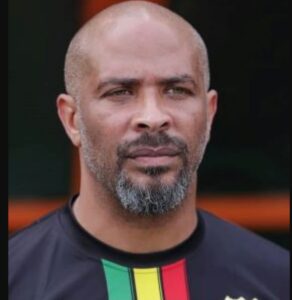Late claims! “Ronnie O’Sullivan Calls for Mental Health Support at Snooker Tournaments, Claiming It Could Have Prevented His Withdrawal from the 2025 Masters”…
Ronnie O’Sullivan, often referred to as the greatest snooker player of all time, has recently brought attention to a change he believes could have altered his decision to withdraw from the 2025 Masters.
Known for his exceptional skill and candid demeanor, O’Sullivan’s decision to step away from the prestigious tournament raised questions about the pressures of professional snooker.
In response, he has called for greater focus on mental health support within the sport, proposing a transformative shift in how players’ well-being is managed.
The Pressure of Professional Snooker
Snooker, though often perceived as a calm and methodical sport, imposes significant mental and emotional strain on its players.
The demands of precision, concentration, and consistency under the spotlight can weigh heavily, particularly for athletes like O’Sullivan, who have spent decades in the limelight.
O’Sullivan, a seven-time world champion, has openly discussed his battles with mental health throughout his career.
From struggling with depression to dealing with the expectations tied to his success, his journey has highlighted the often-overlooked challenges of competing at the highest level.
His recent withdrawal from the Masters followed an incident where he broke his cue in frustration during a Championship League match—an act that symbolized his mounting frustrations.
Reflecting on the incident and his decision to step away, O’Sullivan proposed a solution he believes could have made a difference: implementing mental health support services at tournaments.
O’Sullivan’s Call for Change
In a recent interview, O’Sullivan suggested that professional snooker organizations, particularly World Snooker, should employ mental health professionals to support players during events.
He envisioned having someone available for players to talk to immediately after matches, offering a safe space to process emotions, regroup, and manage stress.
“I think snooker should have someone at the tournament employed as someone to talk to if you’re struggling,” he said. “If you’ve come off the table, do you need 10 minutes with someone? That could make all the difference.”
O’Sullivan’s suggestion stems from his belief that mental resilience is just as crucial as technical skill in snooker. While coaches and practice routines help refine a player’s game, addressing the psychological toll of competition remains largely neglected.
He emphasized that even the most accomplished players, such as Mark Selby and John Higgins, have faced significant mental health challenges, underscoring the need for comprehensive support.
The Importance of Mental Health in Sports
O’Sullivan’s comments align with a broader movement across sports to prioritize mental well-being.
In recent years, athletes from various disciplines, including tennis star Naomi Osaka and gymnast Simone Biles, have stepped forward to discuss the pressures of elite competition and the importance of mental health.
Their advocacy has sparked conversations about breaking the stigma surrounding mental health issues in sports.
For snooker, a sport with long matches and high stakes, the psychological aspect can often determine the outcome. O’Sullivan pointed out that players frequently suffer in silence, lacking the tools or resources to address their struggles.
He believes that by normalizing mental health support, the sport can create a healthier environment for its athletes.
How Mental Health Support Could Prevent Withdrawals
O’Sullivan’s withdrawal from the Masters is a prime example of how unaddressed mental health challenges can impact a player’s career.
He acknowledged that having access to a mental health professional during the Championship League incident might have helped him manage his emotions better.
Instead of breaking his cue and spiraling into frustration, he might have found a constructive way to cope, potentially avoiding the decision to withdraw.
By implementing mental health services, snooker tournaments could provide players with tools to navigate their emotions, build resilience, and maintain focus.
This proactive approach could prevent situations like O’Sullivan’s and foster a culture where seeking help is seen as a sign of strength rather than weakness.
The Path Forward for Snooker
O’Sullivan’s call for change comes at a pivotal time for the sport. As snooker continues to grow in popularity, its governing bodies have an opportunity to set an example by prioritizing players’ well-being.
Implementing mental health support services at tournaments would not only benefit current players but also send a powerful message to future generations.
For O’Sullivan, this change represents more than just a practical solution; it’s a way to address the deeper issues that have plagued his career and others’.
As he continues to compete and adapt to new challenges, including switching to a new cue, his advocacy for mental health serves as a reminder that even the most successful athletes are human.
Ronnie O’Sullivan’s suggestion to incorporate mental health support into snooker tournaments marks a crucial step toward addressing the sport’s psychological demands.
By providing players with the resources to manage their mental well-being, snooker can foster a more sustainable and inclusive environment.
For O’Sullivan, who has faced and overcome numerous challenges in his career, this change could have been the key to preventing his Masters withdrawal.
His call to action serves as an important reminder that behind every champion is a human being deserving of care and support.





